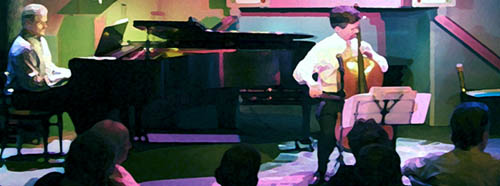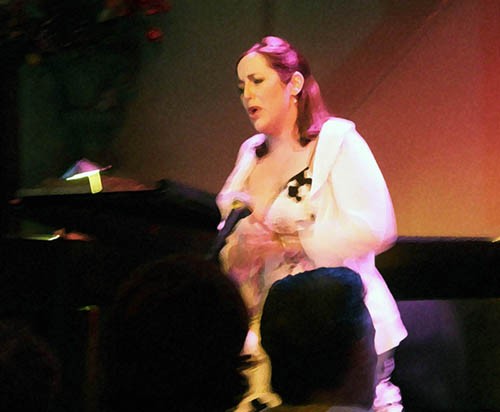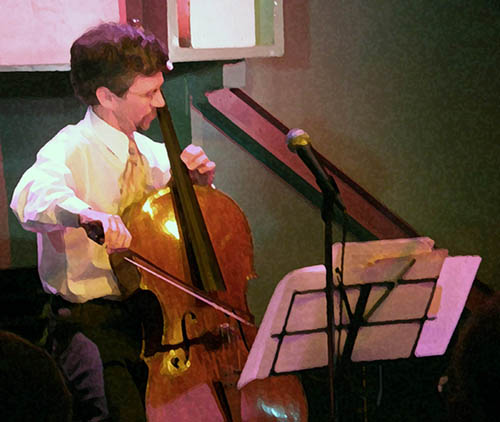Music, Creativity -- and Anarchy
Today, music and creativity -- from the ground up. The University of Houston's College of Engineering presents this series about the machines that make our civilization run, and the people whose ingenuity created them.
You've heard me talk about anarchy before. Not rioting in the streets, but anarchy as it describes the binding human drive toward cooperation and mutual well-being -- as the unifying social force that makes mere appendages of would-be leaders. The word anarchy, after all, means without leaders.
The other night I heard a superb concert of French chamber music from around the turn of the last century. Five musicians rearranged themselves into various configurations -- piano quartet, accompanied singer, sonatas. In each grouping you'd have thought they'd been playing together for years. In fact, these were ad hoc groupings, just for this evening.
Houston is a huge city whose arts are unusually strong, even for its size. If we identify those of the top musicians who do chamber music, we have a finite pool. The pool fluctuates but the people all know each other and perform together often. And, here's the key: They're at their best when they join without leadership.

The organization that arranged this concert uses the principle of anarchy to get great performances. They go to the pool of fine players and ask for proposals -- a theme and a budget. Then the person who made proposal selects a small group from the pool and builds a program. The organizing rests upon grass roots. I have seen them dip into the pool to find a one-time conductor, but that's rare. The system runs on cooperation, not leadership.
So I spoke with a Houston jazz player and a jazz booking agent. Same story there: Houston has maybe fifteen or so top players of each instrument at any time. They know each other, and play with one another here and there. When they meet on stage, in varying configurations, they know what to do -- how to hear and respond to each other. The mood among them is a great deal more cooperative than competitive. There's a lot of mutual respect.
What's missing in these systems is any sense of competing for a leader's favor. The drive, instead, stays focused on making the best sound possible. Would-be leaders will often claim that competition makes for excellence. But competition for what! When we all seek out the best possible product, the search for institutional favor becomes a destructive distraction.
Industry struggles with these matters. I'm asked again and again how to awaken creativity within an industry. Again and again I have to say that freedom is the mother of invention. Well, freedom and the joy of doing. I spent most of my life directing graduate students in their research. And that process worked only when the student and I functioned as equals before the task. When I let myself be reduced to saying "Do this, do that," I'd failed.
Now these leaderless musicians reinforce the message: They succeed because they're equals before the objective -- whether a glorious sound, a glorious invention or a glorious product. That's the reason the music was so surpassingly fine the other evening.
I'm John Lienhard, at the University of Houston, where we're interested in the way inventive minds work.
The concert mentioned above was titled An Evening in Paris, Tuesday, November 20, 2007 at St. Stephen's Episcopal Church in Houston, TX. It was sponsored by the St. Cecilia Chamber Music Society. (Photo images by JHL are from a previous performance and another configuration of performers.)
For more on this view of anarchy as a positive social force, click here.
For more on the very live Houston jazz scene, go to:
http://www.jazzhouston.com
See also Episode 1491 for more music and leaderlessness.

